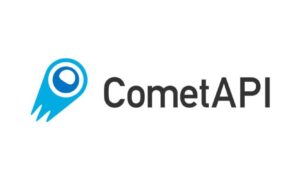Artificial Intelligence (AI) is transforming industries, automating processes, and reshaping workplaces. Many fear that AI will replace human jobs, leaving workers unemployed. However, AI can be leveraged to complement human skills rather than replace them. By taking strategic steps, businesses and individuals can ensure AI supports job growth instead of eliminating it.
AI as a Tool for Growth, Not Replacement
AI is widely used in business to improve efficiency, analyze data, and enhance customer experiences. From chatbots to predictive analytics, AI helps companies operate smarter. However, rather than replacing jobs, AI can assist employees in making better decisions and automating repetitive tasks, freeing them for more complex work.
Businesses that focus on AI use in business can create new opportunities for employees. For example, AI-powered customer support can handle basic queries, while human agents focus on more personalized interactions. This balance ensures that businesses benefit from AI while maintaining essential human roles.
Upskilling: The Key to Job Security in an AI-Driven World
To stay relevant in an AI-driven world, workers must embrace lifelong learning. AI may replace repetitive jobs, but it cannot replicate creativity, critical thinking, and emotional intelligence. Employees should focus on learning new skills that AI cannot perform.
Many companies are offering AI-related training programs. Governments and organizations are also encouraging digital literacy initiatives. Those who continuously update their skills will remain valuable in the workforce, taking on jobs that AI enhances rather than replaces.
The Impact of AI Integration on Job Creation
With AI playing a significant role in software development, integrating AI into apps has become a major trend. AI-powered apps improve user experiences by providing personalized recommendations, automating customer support, and streamlining business processes.
However, integrating AI into apps also creates job opportunities. Developers, AI specialists, and data analysts are needed to build, monitor, and optimize AI-based apps. Businesses investing in AI app development should focus on training employees to work alongside AI rather than replacing them.
Promoting Ethical AI Use to Protect Jobs
To prevent AI from taking over jobs unfairly, ethical AI practices must be in place. Governments and businesses should implement AI regulations that ensure transparency, fairness, and human oversight.
AI should be used to assist workers, not replace them. Companies that adopt ethical AI policies, such as human-in-the-loop AI models, ensure that humans remain essential in decision-making processes. Such initiatives will protect jobs while allowing AI to enhance productivity.
Conclusion
AI does not have to be a threat to jobs. By ensuring responsible AI use in business, focusing on upskilling, and integrating AI into apps thoughtfully, we can create a future where humans and AI work together. The key is to use AI as an enhancement rather than a replacement, ensuring that workers remain at the heart of innovation.
FAQs
Q: How can businesses ensure AI does not replace jobs?
A: Businesses should use AI to automate repetitive tasks while allowing employees to focus on complex and strategic roles.
Q: What skills should workers learn to stay relevant in an AI-driven world?
A: Employees should focus on skills like creativity, emotional intelligence, problem-solving, and AI-related technical skills.
Q: How does integrating AI into apps create new job opportunities?
A: AI-powered apps require developers, analysts, and AI specialists to build, manage, and optimize their functionality.
Q: What are some ethical ways to implement AI without job losses?
A: Ethical AI use includes human oversight, transparency in AI decision-making, and using AI to assist rather than replace workers.
Q: Will AI create more jobs than it replaces?
A: If implemented responsibly, AI has the potential to create more jobs by opening up new fields, requiring new expertise, and improving overall work efficiency.



































